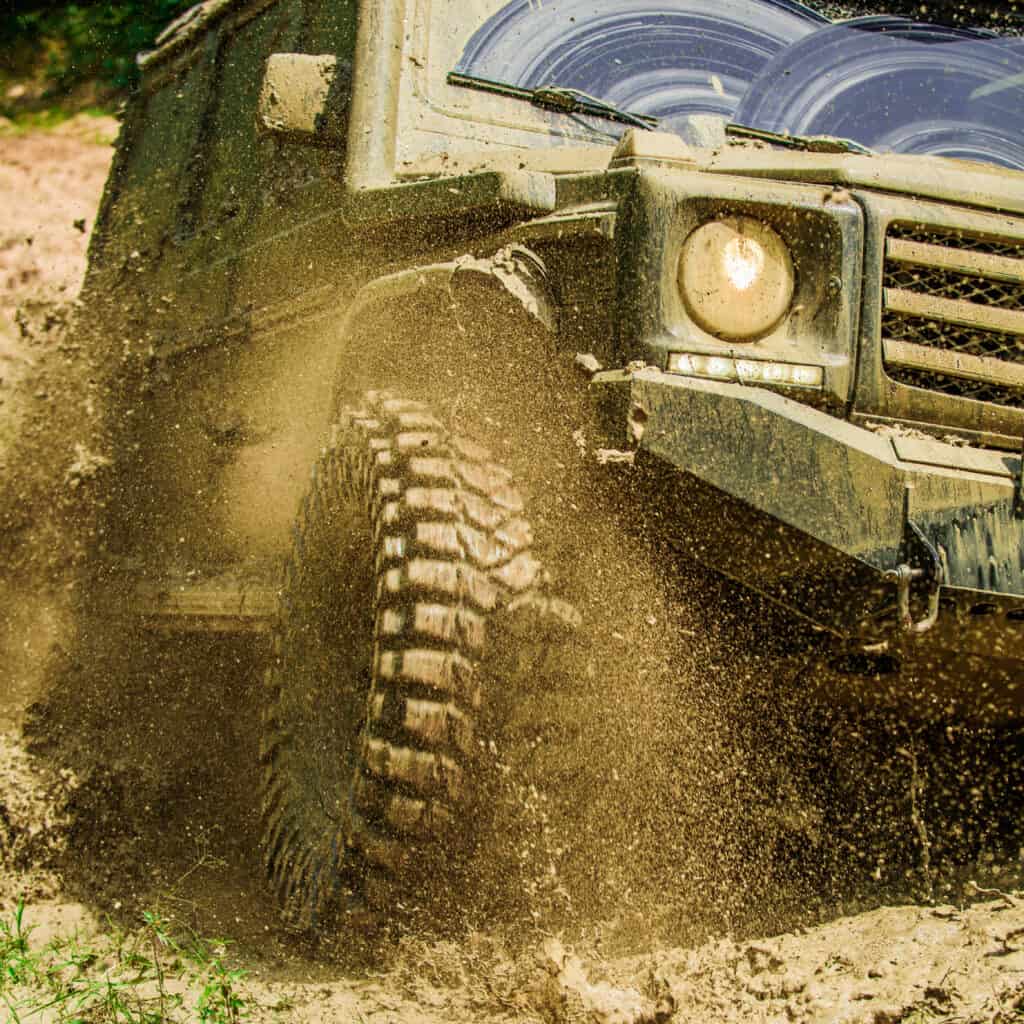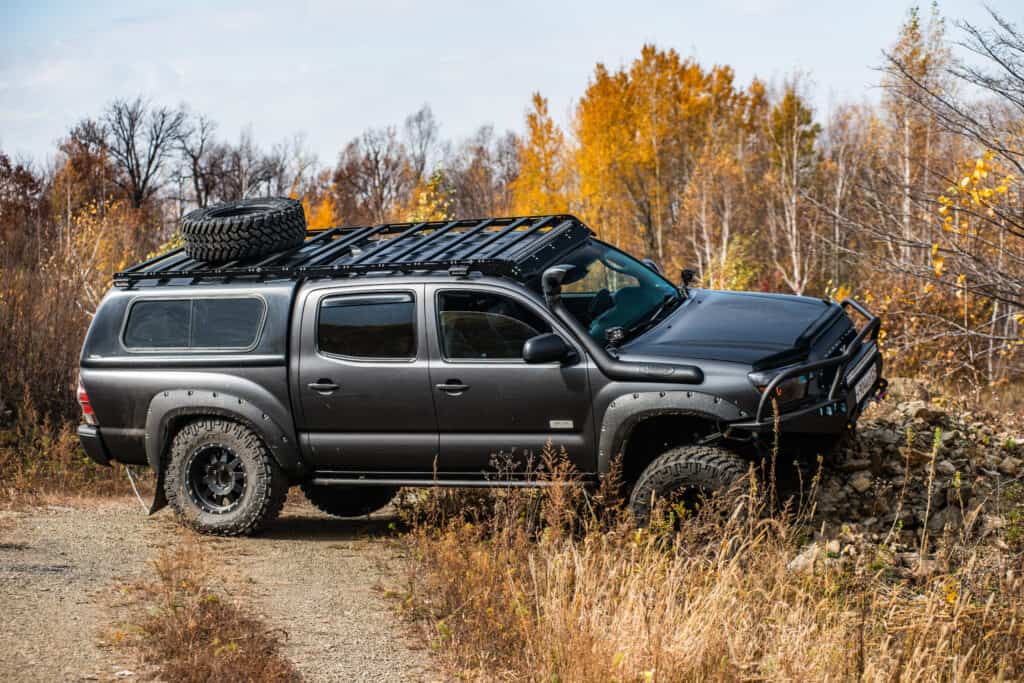Is Diesel Better for Off-Roading?
Off-roading is an activity that has really been growing in popularity! With this increase in traction, questions regarding the use of diesel for off-roading, especially with the debate comparing diesel with gas vehicles, have become more and more prominent.
Although diesel vehicles aren’t great in regards to cost and maintenance, they are better overall when it comes to off-roading because of their torque, power, longevity, efficiency, mile range, fuel economy, high weight carrying capacity, and safety features.
While those are the primary reasons why diesel is better for off-roading, there are more to those reasons, and also a few others for why diesel is better. Let’s take a deeper look into all of the reasons on the matter for a full analysis and better understanding of diesel vehicles and their off-roading capabilities.
Reason #1: Torque and Power
First, let’s define torque. Essentially, torque is the power the vehicle has when turning corners while off-roading. Having good torque, especially when it comes to off-roading, allows for the force to be maintained even while turning. The slope or descent and the inconsistent terrain are accommodated. Normally, pulling that off would have an intense impact on the engine and make the wheels spin, but not with diesel.
In regards to power, there are quite a few aspects of power that give diesel the advantage. The thing with off-roading is that the terrain is never smooth—it is rough and has varying levels of difficulty. Unlike car racing, the goal isn’t to go as fast as possible. Speeds aren’t fast with off-roading, usually averaging around 10 miles per hour instead. Because of the lower-speed torque a diesel has, it is better and more efficient with its power. They maximize their power at low speeds, which is a huge advantage, especially when navigating rocks and such.
Sources: Big Bear Engine Company, The Fast Lane Truck, and Off-Road
Reason #2: Longevity/Durability or Efficiency
When it comes to getting a car that will last through many miles, diesel is the way to go. While some people try to switch out their car around 50,000 miles to save money on repair costs, the joke for diesel vehicles is that it has to reach 100,000 miles of usage before truly being broken in.
Because of how their engine is designed, it is better able to withstand the pressure, the bumps, and the bruises, so to speak. Diesel vehicles are tough, sturdy, and reliable, which is always a benefit when it comes to off-roading.
Source: Pickup Trucks News, Don Johnson Motors, and The Fast Lane Truck

Reason #3: Miles in Range
Diesel vehicles, specifically diesel trucks, are known for having an amazing rate with how many miles they can go per gallon of fuel. That is particularly useful with off-roading because it allows you to travel longer distances off the road before you need to return to refill the car’s tank.
In fact, while most cars typically travel less than 20 miles per gallon, a large, heavy diesel vehicle can go 25+ miles per gallon, and mid-size to small diesel vehicles can potentially get over 30 miles per gallon. That is super impressive and handy! It also helps save money on fuel in the long run.
Sources: Pickup Trucks News, and Don Johnson Motors
Reason #4: Fuel Economy and Taxation
Although diesel fuel tends to be harder to find, it has a better fuel economy. When it comes to diesel fuel, there are several names it may be referred to as. Some of the names it is called are red-dyed diesel, alternative fuel, red fuel, off-highway diesel, or farm diesel if it is off-road diesel (an off-road diesel vehicle would be tractors, construction machines, possibly some four wheelers or ATV’s, etc.).
For on-road diesel fuel, it may be called clear diesel, truck diesel, or automobile diesel, or green diesel. With diesel vehicles, not only is money saved on fuel from the distance range the vehicle gets per gallon, but also in the fuel consumption rates. When comparing gas engines and diesel engines at full power, it was found that diesel engines consumed 75% of the amount of fuel that gas engines did.
Also, when comparing gas engines and diesel engines at 20% power, the diesel engine used 35% of the fuel that the gas engine used. Diesel vehicles have a remarkable fuel economy, to say the least!
As for taxation, there can be some perks if the diesel vehicle uses off-road diesel fuel. If the vehicle is able to use that fuel, then you can actually save money by not having to pay taxes on it! Keep in mind though, if off-road diesel fuel is used for an on-road diesel vehicle, big fines could occur.
Sources: McIntosh Energy, Off-Road, and Ricochet Fuel
Reason #5: Carrying Capacity
When it comes to gas trucks and diesel trucks, diesel has the higher end with towing. That is because of their low torque, and their remarkable fuel mileage. The low torque provides more efficient use of power and energy, including while towing.
The distance in miles per gallon that can be reached is not only better as a generality but also when carrying heavy loads, so it can travel farther and last longer. Diesel trucks also have an exhaust brake, which proves to be useful when towing on a downward incline. This addition to the brakes makes it so they don’t have to handle so much strain and aren’t ruined and burned out from keeping the immense weight steady while going downward.
Source: Pickup Trucks News

Reason #6: The Terrain
Diesel vehicles aren’t as good with muddy terrain, specifically for diesel trucks, but they are perfect for hilly and rocky terrain. The reason why they aren’t as proficient when it is muddy is that they have extra, additional weight on the front end of the truck.
The added weight, and also the unevenness of the weight, makes it more likely that vehicles will get stuck with their wheels spinning in the mud. However, while this is also dependent on the setting, it is far more common for terrain to consist of rocks and hills, and that is where diesel vehicles have the upper hand.
Source: Pickup Truck News
Reason #7: Safety
As silly as it may sound and as irrelevant as it may seem, diesel fuel is incredibly difficult to light on fire. The danger of fuel overheating and lighting on fire skyrockets exponentially with off-roading because of the amount of work and pressure the engine faces.
That added stress on the engine can make the temperature so hot that the driver starts to see smoke from the engine. Let’s just say, it is always better to not have fuel lighting on fire, and diesel is the best for that.
Source: Off-Road
Reason #8: Vehicle Size
More specifically with trucks, diesel vehicles tend to be taller and longer than gas trucks, but they both have the same width. That being said, narrower trails are typically fine, and the height and length of the truck can be helpful with sight and navigation. It also gives extra assistance, particularly when off-roading through hills or rocky terrain.
Source: The Fast Lane Truck
